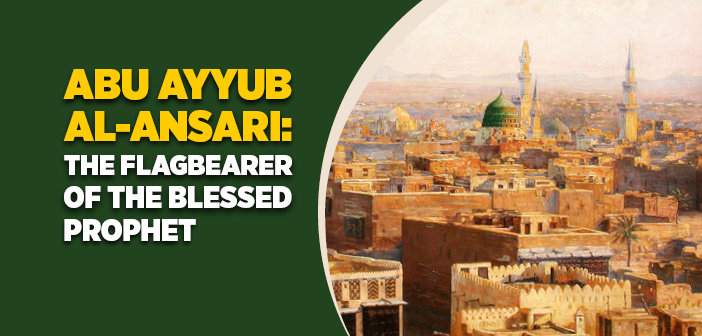What is spoils? What is the verdict regarding the spoils in islam?
As a regulative principle regarding spoils had not yet been revealed, disagreements emerged over the distribution of the spoils seized at Badr. Amongst others that can be mentioned, Saad ibn Abi Waqqas -Allah be well-pleased with him-, whose brother was martyred at Badr, came to the Blessed Prophet -upon him blessings and peace- holding a sword in his hand he had seized from Said ibn As, who he killed during the battle, suggesting it should be given to him. Like incidents and requests brought about the revealing of the first ayah of al-Anfal, before the Believers had even left Badr and distributed the spoils:
“They ask you (O Muhammad) of the spoils of war. Say: The spoils of war belong to Allah and the messenger, so keep your duty to Allah, and adjust the matter of your difference, and obey Allah and His messenger, if you are (true) believers.” (al-Anfal,1)
The Blessed Prophet -upon him blessings and peace- thus accordingly and in a just manner, apportioned the spoils to the fighters near Medina.[1]
Revealed afterward was an ayah which comprised more detailed rulings concerning spoils, the 41st ayah of the same surah:
“And know that whatever you take as spoils of war…A fifth thereof is for Allah, and for the messenger and for the kinsmen (who have need) and orphans and the needy and the wayfarer, if you believe in Allah and that which We revealed unto Our slave on the Day of Discrimination, the day when the two armies met. And Allah is Able to do all things.” (al-Anfal, 41)
In accordance with the ayah, a fifth of the spoils of battle are for Allah, His Messenger, his kinsman, orphans, the needy and the wayfarer.
After seeing to the needs of his family members with the portion of spoils that fell to his lot, the Noble Prophet -upon him blessings and peace- deposited the remainder in the Treasury, to be spent to cover the needs of Muslims and army expenses.[2]
Amr ibn Abasa -Allah be well-pleased with him- narrates:
“The Messenger of Allah led us in salat with a camel, from among the spoils of battle, as sutrah[3], placed in the direction of qibla. After completing the salat, he plucked a hair from the side of the camel, and holding it up in his hand, said, ‘Not even this much of your spoils, apart from the fifth, is permissible for me to take. Besides, even the fifth is ultimately returned to you (spent for your needs).’” (Abu Dawud, Jihad, 149/2755)
Whatever he had, the Messenger of Allah -upon him blessings and peace- would give to the needy among the Companions, despite the fact that many a time there would not be anything to cook in his own house, with the hearth remaining unlit for months on end. It is clear, from many similar narrations that he and his family would on most occasions be without a day’s supply of food. His conduct in this regard is vividly displayed in the subsequent incident narrated by Anas -Allah be well-pleased with him-:
“Some goods from Bahrain were brought to the Messenger of Allah, who ordered them be temporarily dropped off inside the Masjid. Bay far, it was the most brought to the Messenger of Allah to date. The Messenger of Allah -upon him blessings and peace- went to offer salat did not turn his eye once towards the pile. After the salat, he came and stood by the pile and began giving it out to whoever he saw; he did not leave, until there was not even a dirham left that had not been given out.” (Bukhari, Salat, 42; Jizya, 4, Jihad, 172)
Surah al-Anfal was revealed in the second year of Hegira. As much of it provides detail on the Battle of Badr, coupled by the fact it was revealed during the few days prior to and after the battle, it has also been called the surah of Badr.
[1] Ahmad, I, 178; V, 323-324; Abu Dawud, Jihad, 144-145/2737-2744.
[2] Bukhari, Faraid, 3, Khumus, 1, Nafaqat, 3; Muslim, Jihad 49.
[3] A sutrah is a curtain or anything that could be used as cover. Specifically, it refers to what is placed in front of one performing salat for the purpose of preventing others from passing in front of him.
Source: Osman Nuri Topbaş, The Prophet Muhammed Mustafa the Elect II, Erkam Publications





